 3
Issue 3
3
Issue 3
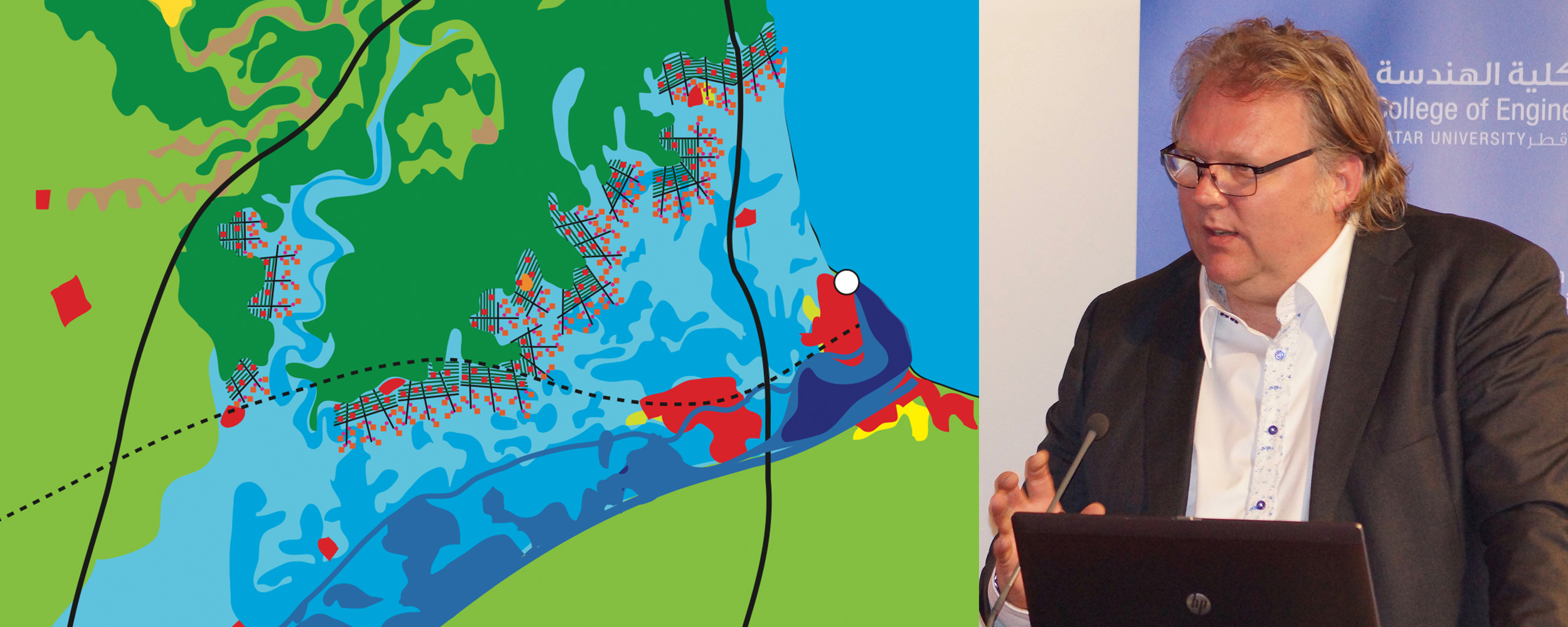
Dr Rob Roggema, Sustainable Urbanism New Directions Workshop, University of Qatar, 21 March 2016, © University of Qatar.
Swarm Planning: A Systems Approach to sustainable urbanism
An alternative approach to urbanism: Swarm Planning, enables the city to anticipate change through responding in advance to different time horizons of change and to take the biggest uncertainty as the starting point for design, argues Dr. Rob Roggema, landscape architect and a design expert on climate adaptation, renewable energy planning and urban agriculture.
A key problem of our cities is that developments of very different nature, pace and impact are treated in the same way. Urbanism is addicted to blueprint planning, in which the solutions provided are unchangeable and the city can only fit within the structures instead of the other way around. Especially with the problems of our time, such as climate change and other unprecedented change occurring, the so-called wicked problems, we need to design our cities in preparation for uncertainties. I distinguish three types of urbanism, all manifest in every city at the same time: fast urbanism, slow urbanism and suddenism. For each of these the urban context needs to facilitate developments. This implies that a city that is unchangeable cannot survive in the long term.
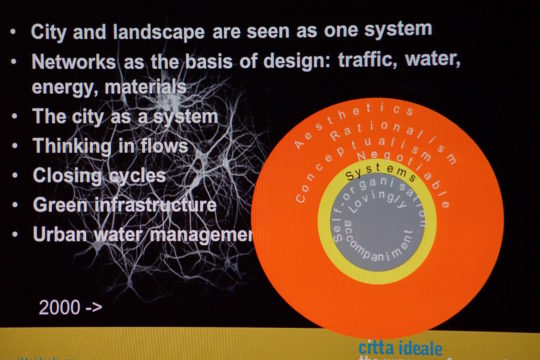
Dr. Rob Roggema’s presentation, Sustainable Urbanism New Directions Workshop, Qatar University, 21 March 2016, © Qatar University.
Uncertainties, or threats, don’t require defensive protective walls, but should be seen as inspiration for a creative non-linear solution. A solution that triggers the urban landscape to self-organise according to the type and pace of disturbance. This forms the input for flexible and adaptive designs. There are several examples of this approach, one in the northern part of the Netherlands dealing with potential floods, and one in Australia, anticipating bushfires; another, an anticipative design for the favelas in Brazil, consisting of a FoodRoof, an intervention to give favela people access to locally produced and healthy food.
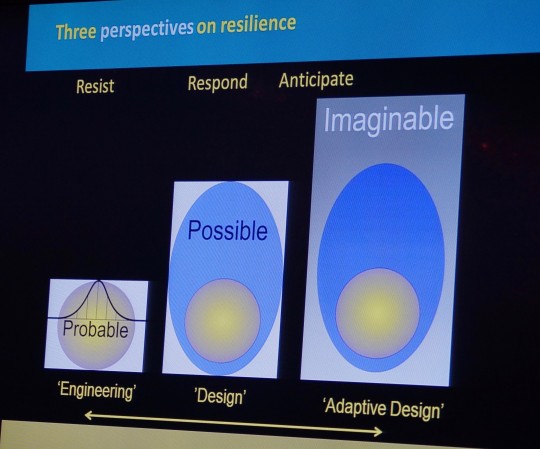
From Dr Rob Roggema’s presentation, Sustainable Urbanism New Directions Workshop, Qatar University, 21 March 2016, © Qatar University.
The process of involving a large and mixed group of people in designing for complex problems through the design charrette, is very successful in bringing people together, breaking barriers and stepping out of vested interests. Through collaborative design exercises the team builds (literally) its own image of the future. It allows for mutual learning in loads of creativity to be exploited during the design process. And it leads to a supported, sustainable plan.
Looking at the future of urbanism new research pathways are to be found in making the city more adaptable. In this context I suggest to focus research on two new directions:
1. How to design a city that can be agile, a city that moves along with changing circumstances, just like a flock of birds does. Every time the environment changes the city moves along and adjusts itself to the new circumstances.
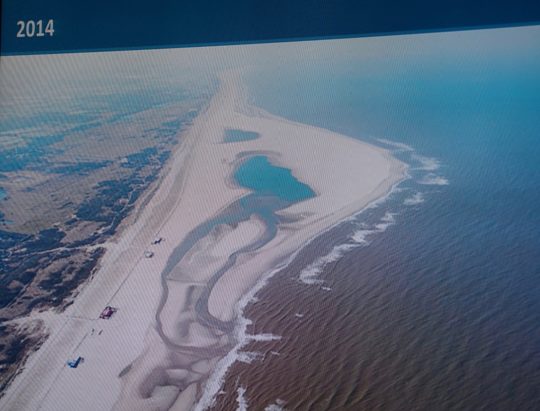
From Dr Rob Roggema’s presentation, Sustainable Urbanism New Directions Workshop, Qatar University, 21 March 2016, © Qatar University.
2. How to design an anti-fragile city? Can we create urban environments that grow and improve under influence from a threat, a disaster or something negative. How to visualise a city that is getting stronger as result of an attack and takes the threat as an opportunity for improvement?
orroroborro@gmail.com
Dr. Rob Roggema
Dr.Rob Roggema is a landscape architect and internationally renowned design expert on climate adaptation, renewable energy planning and urban agriculture. He has held positions at several universities in the Netherlands and Australia, State and Municipal governments and design consultancies.
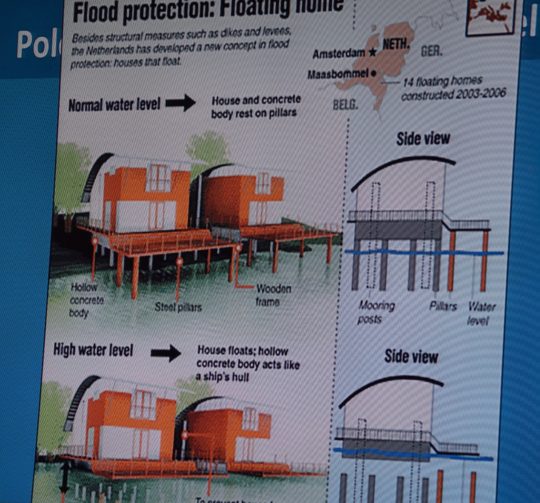
From Dr Rob Roggema’s presentation, Sustainable Urbanism New Directions Workshop, 21 March 2016, Qatar University, © Qatar University.
He is director of Cittaideale, a research office for adaptive design and planning, and was appointed as Adjunct Professor Planning with Complexity at the Centre for Design Innovation, Swinburne University of Technology, Melbourne. He is currently advising the Dutch government about the future of the Dutch landscape. He developed the Swarm Planning approach to resilient and sustainable urbanism. He received the scientific award for best paper at the World Sustainable Building Conference in Melbourne in 2008 and has written books on Climate Adaptation and Spatial Planning, Design Charrettes and Urban Agriculture. He has led over 35 international design charrettes involving communities, academics, governments and industries in complex design processes.